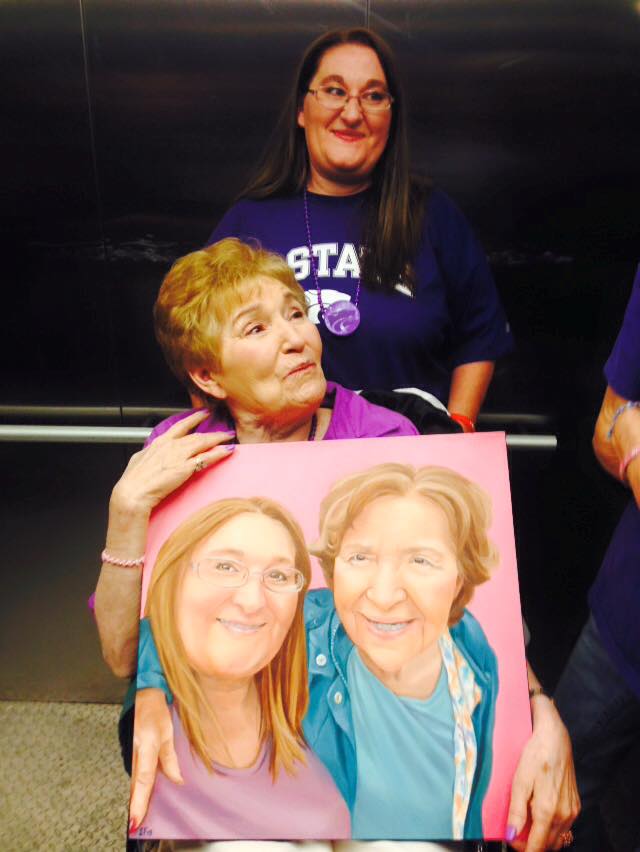AARP Hearing Center

Charity cares for her grandmother, Joan, who suffered a severe stroke several years ago. Charity, along with other family members, helps take care of Joan so she can remain in her own home. While difficult at times, Charity wouldn’t have it any other way.
Charity is not alone. She is just one of 345,000 family caregivers across Kansas who work tirelessly caring for older parents and grandparents, spouses, friends, or other loved ones so that they can continue living independently, with dignity, at home—where they want to be.
With the vast majority of older Kansas residents wanting to remain in their homes and communities as they age, the contribution of family caregivers cannot be overlooked. This silent army is the backbone of elder care in our state, providing unpaid care valued at about $4 billion annually. Without the help of family caregivers, too many of our seniors would end up in costly institutions – often paid for by the state, through Medicaid.
Today, family caregiving is a common family dynamic. If you’re not a caregiver now, you were one in the past, or will likely become one in the future.
For some family caregivers, their role is more involved as they care for a loved one 24 hours a day, seven days a week, often performing complicated medical tasks like wound care, injections, and medication management—once in the domain of only doctors or nurses.
Unpaid caregivers are often unprepared when the person for whom they care is hospitalized. Without the proper information, knowledge and instructions, they are unable to adequately assume the care regimen established during a hospital stay, and sometimes this lack of communication results in care issues or hospital readmissions. However, there is a way to provide both hospitals and caregivers with the proper protocols to eliminate these communication issues. It’s called the CARE Act.
AARP Kansas is fighting for The Caregiver, Advise, Record, Enable (CARE) Act to help family caregivers when their loved ones go into the hospital—and as they return home. The CARE Act (House Bill 2058 and Senate Bill 265) will give family caregivers the support they need by, requiring hospitals to record the name of the caregiver when their loved one is admitted, notify the caregiver when their loved one is to be moved or discharged, and instruct the caregiver on the medical tasks they will need to perform at home.
As we try to reign in health care costs, reduce costly hospital readmissions and trips to the emergency room, arming family caregivers with the information and knowledge they need to safely care for their loved ones at home is paramount.
While they would not have it any other way, family caregiving is a big job and caregivers could use a little help. AARP urges the Kansas Legislature to support the 345,000 family caregivers across Kansas and pass the CARE Act. To contact your legislators and ask for their support, call the legislative hotline at 1-800-432-3924 or e-mail legislators by visiting the legislative website.
If you'd like to share your caregiving story, visit iheartcaregivers.































































